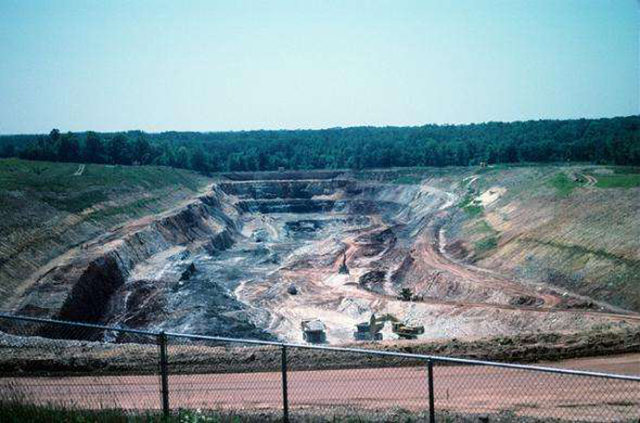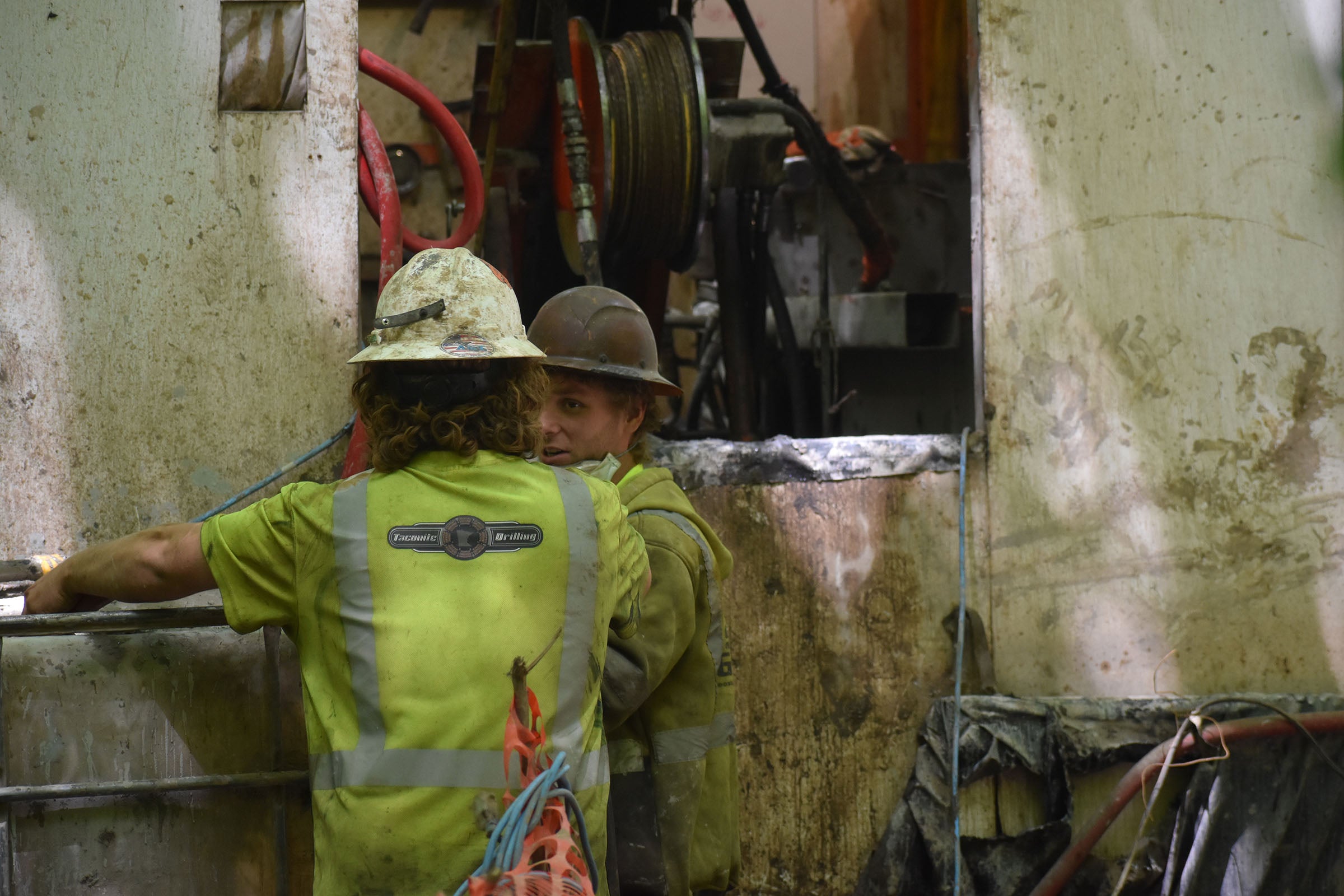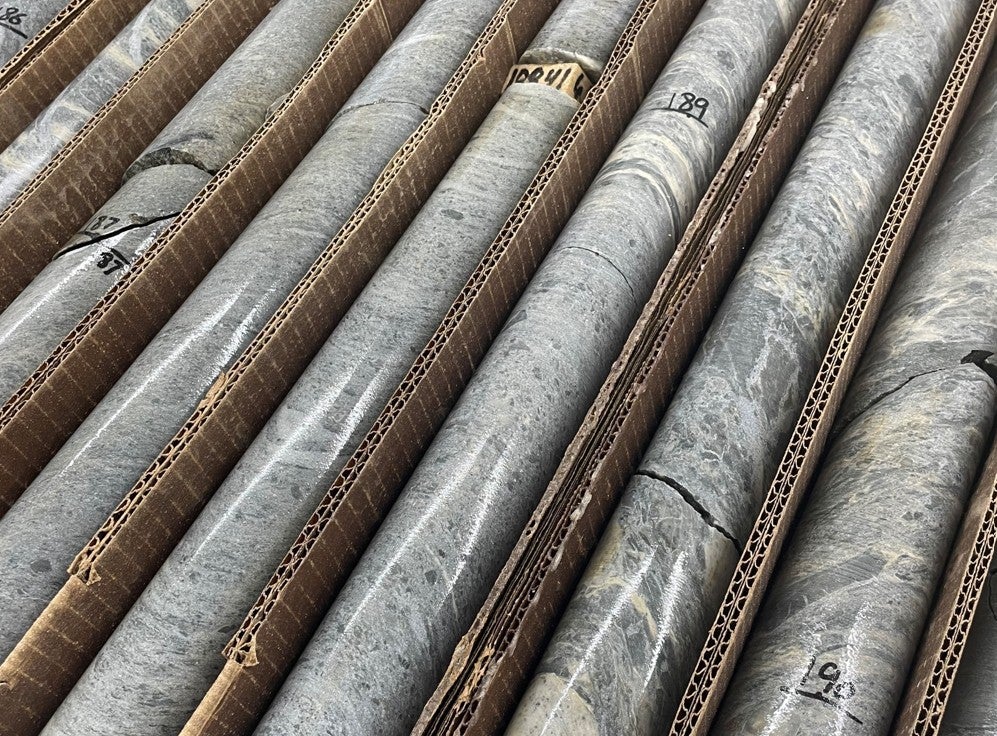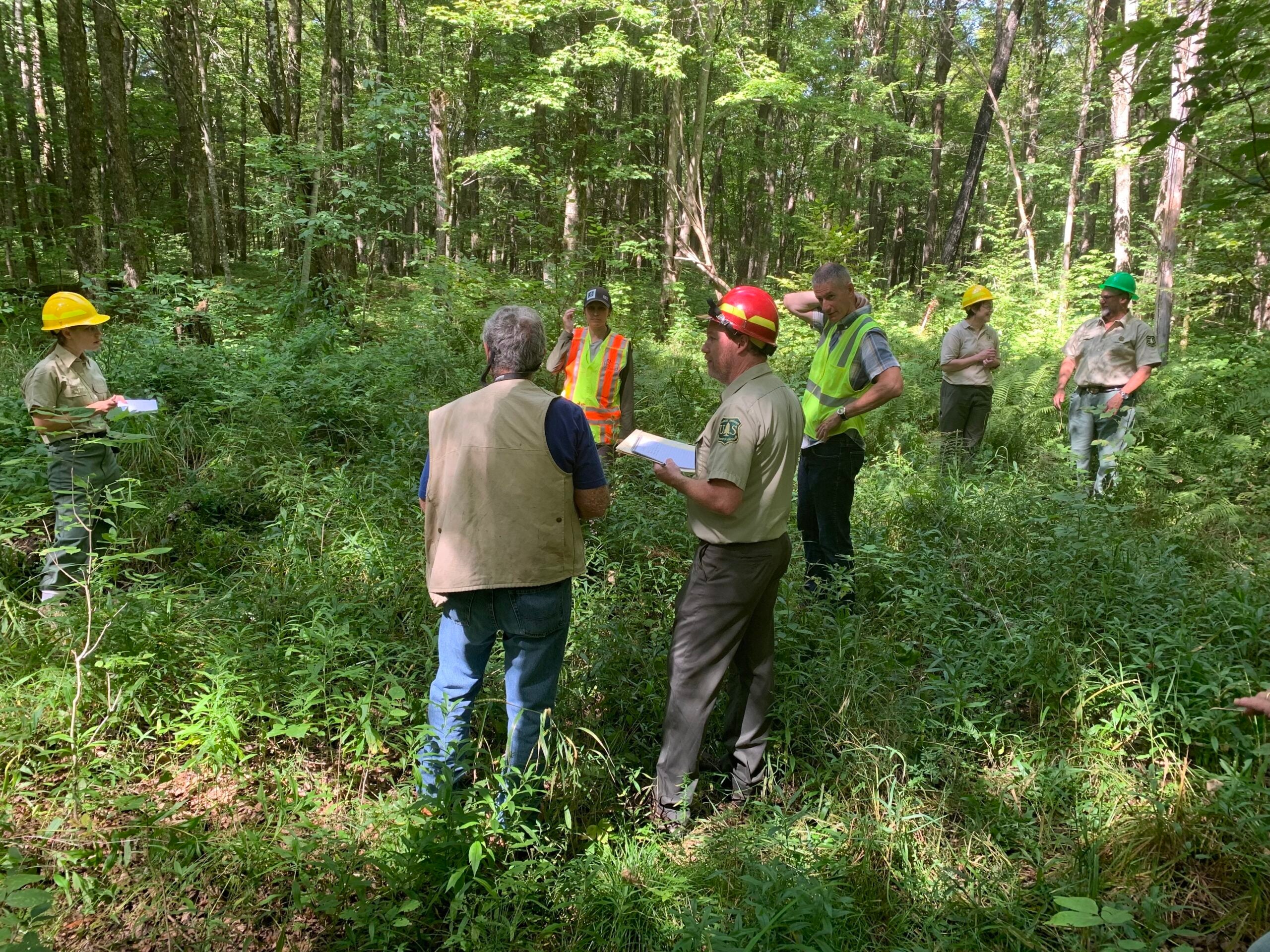Some Marathon County residents expressed fears Tuesday that a mining company’s plans to drill for gold and other minerals in central Wisconsin may lead to water contamination.
The Milwaukee Journal Sentinel first reported that mining company GreenLight Metals had applied with Marathon County for an exploration permit. Exploratory drilling marks the first step for any company seeking to mine gold or other sulfide minerals after Republican lawmakers lifted the state’s sulfide mining moratorium in 2017.
A sulfide mine hasn’t operated in Wisconsin in more than two decades, and any potential for mining is still years away. Even so, a handful of residents who spoke during an environmental resources committee meeting Tuesday voiced concerns that mining those minerals would lead to acid mine drainage, as well as the impacts that drilling and mining could have on wetlands and nearby species.
News with a little more humanity
WPR’s “Wisconsin Today” newsletter keeps you connected to the state you love without feeling overwhelmed. No paywall. No agenda. No corporate filter.
“I’m really hoping the (Department of Natural Resources), as well as the county, is going to look at the groundwater,” said Nancy Stencil, a town of Rib Mountain resident. “Are you going to guarantee us that they’ll do testing first of the groundwater, so we have a baseline to start with?”
Others emphasized that sulfide mining has a poor environmental track record, including Marathon County resident Kathy Conley-Barth.
“There really haven’t been any mines that have been safe,” said Conley-Barth. “There’s been contamination in every mine, every sulfide mine, that’s associated with that kind of removal of material.”
Dan Barth, who lives in rural Marathon County, said he’s concerned that drill fluid used to conduct exploration may contain so-called forever chemicals known as PFAS, which have been found in public wells in the area.
GreenLight Metals submitted the application on Friday, and it represents the first test of the county’s metallic mining ordinance that was developed in 2018. The company is proposing to drill on privately held land in the town of Easton near the Dells of the Eau Claire County Park, according to Teal Fyksen, land use specialist for Marathon County.
“The site is actually downstream of the Dells by I don’t know exactly how many miles, but it’s miles,” Fyksen said. “And it is not directly on the Eau Claire River.”
Aquila Resources last conducted exploratory drilling of the Marathon County gold deposit in 2012. In a statement released Friday, GreenLight Metals said Marathon County has the potential for significant mineral development.
“While the schedule isn’t set nor timeline finalized, GreenLight is applying for an Exploration Permit in Marathon County so we can help transition our country toward green, clean energy while providing a significant economic boost to the region,” said Dan Colton, president and CEO of GreenLight Metals.
The company received an exploration license from the Wisconsin Department of Natural Resources in February. GreenLight has expressed interest in exploring the Bend and Reef deposits as part of technical reports submitted in March with Canadian authorities.
The Reef deposit, which is roughly 12 miles east of Wausau in Marathon County, contains around 454,000 tons of gold reserves. The Bend deposit, located within the Chequamegon-Nicolet National Forest in Taylor County, contains roughly 4 million tons of mostly copper and gold.
Shad Harvey, land resources manager for Marathon County, said the county does not yet have specific details on the company’s plans that would include the number of boreholes. At the Reef site, the company’s consultant has proposed drilling in grids at six sites with 15 boreholes in each grid. According to technical reports, the cost of the exploration is expected to run around $815,000.
Laurie Miskimins, conservation, planning and zoning director in Marathon County, told Wisconsin Public Radio on Tuesday that the county expects to determine whether the company’s application is complete this week. The county would then have 20 days to review the application.
“Some people have been asking if they’re actually going to be mining. That is a much bigger effort and lift,” said Miskimins. “In order to get permitted to do that, that would (require) a conditional use permit within our county. And, that would take probably years in order for them to go through that process.”
GreenLight Metals also needs to obtain approval from state environmental regulators before any drilling begins. The company has not yet submitted a notice of intent to drill with the state, which is required before beginning any drilling activity. A company spokesperson said they have no definitive timeline for submitting its plans to the DNR.
The DNR would have 30 days to review the company’s plans once the agency receives them, and state regulators plan to coordinate with the county on any mining-related activity.
Scott Manley with Wisconsin Manufacturers and Commerce recently told WPR’s “Central Time” that mining those deposits in northern and central Wisconsin would be an economic boost for those regions.
“These are typically very, very well-paying jobs, much higher wages than the state average, and oftentimes, these are union jobs as well,” said Manley, WMC’s executive vice president of government relations. “I think from an economic development standpoint, it would be a real boost for those immediate areas.”
Wisconsin tribes opposed the repeal of the state’s sulfide mining moratorium, and tribal members have expressed fears sulfide mining will lead to environmental degradation.
“The health of the earth, air and water is at the core of who the Lac du Flambeau Band of Lake Superior Chippewa Indians are as a people,” Lac du Flambeau Tribal President John D. Johnson Sr. said in a statement Tuesday. “This has been a guiding principle for us well before the United States even existed. We share a deep passion and respect for nature with hunters, fishers, birders, hikers and all who enjoy the outdoors in Wisconsin. We value clean land, air and water, and we assess every proposal through the lens of our responsibility as stewards of ensuring future generations can breathe clean air, drink clean water and enjoy the bounty of unpolluted lands.”
The Flambeau mine is the only operation that the state has permitted in 40 years to mine metals like gold and copper that occur in sulfide ore bodies. The mine shut down in 1997 and served as a catalyst for the state’s mining moratorium. In 2017, the Republican-controlled Legislature repealed the moratorium that required companies to prove other mines operated and were closed for 10 years without environmental harm.
Wisconsin Public Radio, © Copyright 2026, Board of Regents of the University of Wisconsin System and Wisconsin Educational Communications Board.



